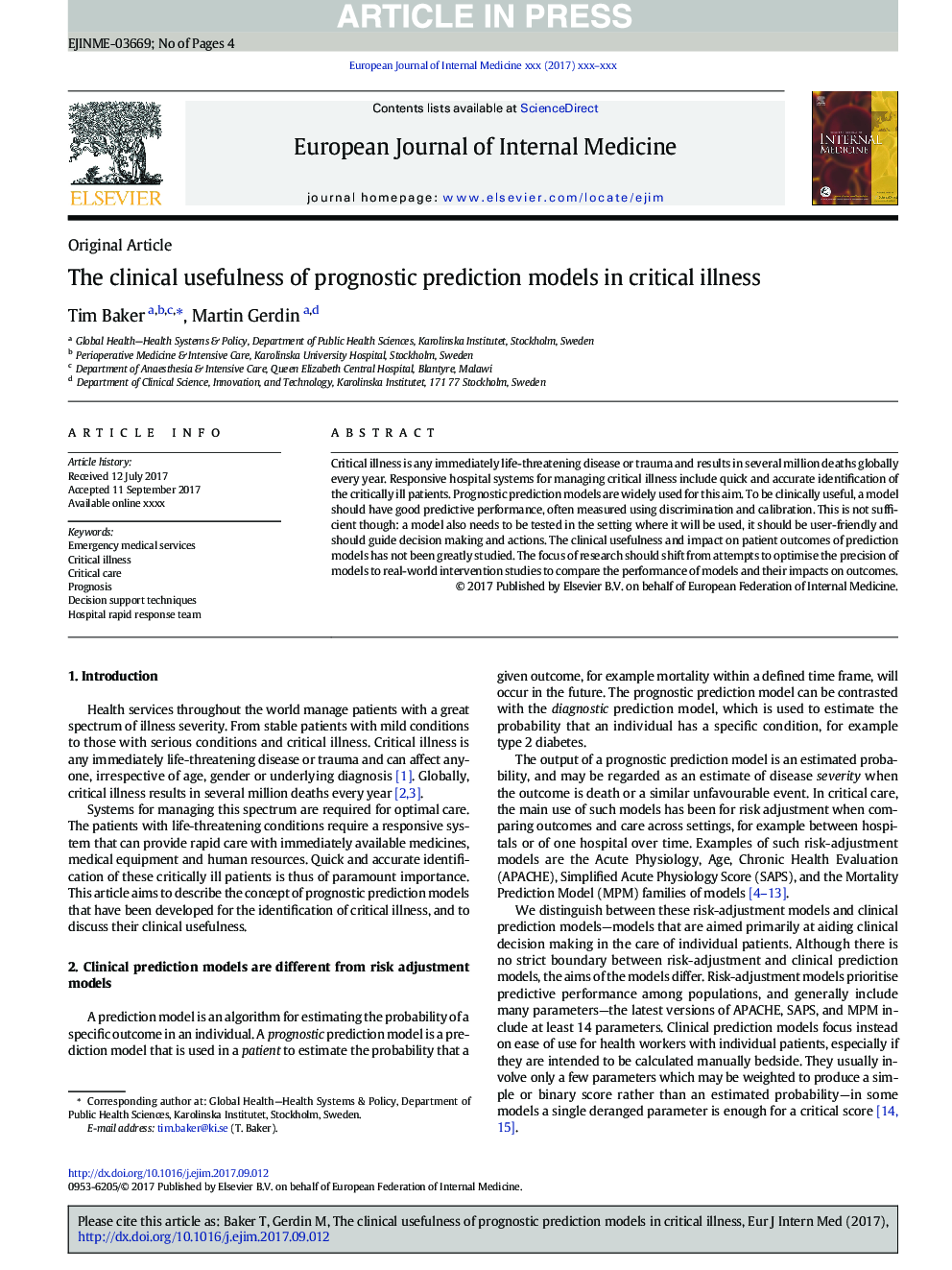| Article ID | Journal | Published Year | Pages | File Type |
|---|---|---|---|---|
| 8758240 | European Journal of Internal Medicine | 2017 | 4 Pages |
Abstract
Critical illness is any immediately life-threatening disease or trauma and results in several million deaths globally every year. Responsive hospital systems for managing critical illness include quick and accurate identification of the critically ill patients. Prognostic prediction models are widely used for this aim. To be clinically useful, a model should have good predictive performance, often measured using discrimination and calibration. This is not sufficient though: a model also needs to be tested in the setting where it will be used, it should be user-friendly and should guide decision making and actions. The clinical usefulness and impact on patient outcomes of prediction models has not been greatly studied. The focus of research should shift from attempts to optimise the precision of models to real-world intervention studies to compare the performance of models and their impacts on outcomes.
Keywords
Related Topics
Health Sciences
Medicine and Dentistry
Medicine and Dentistry (General)
Authors
Tim Baker, Martin Gerdin,
